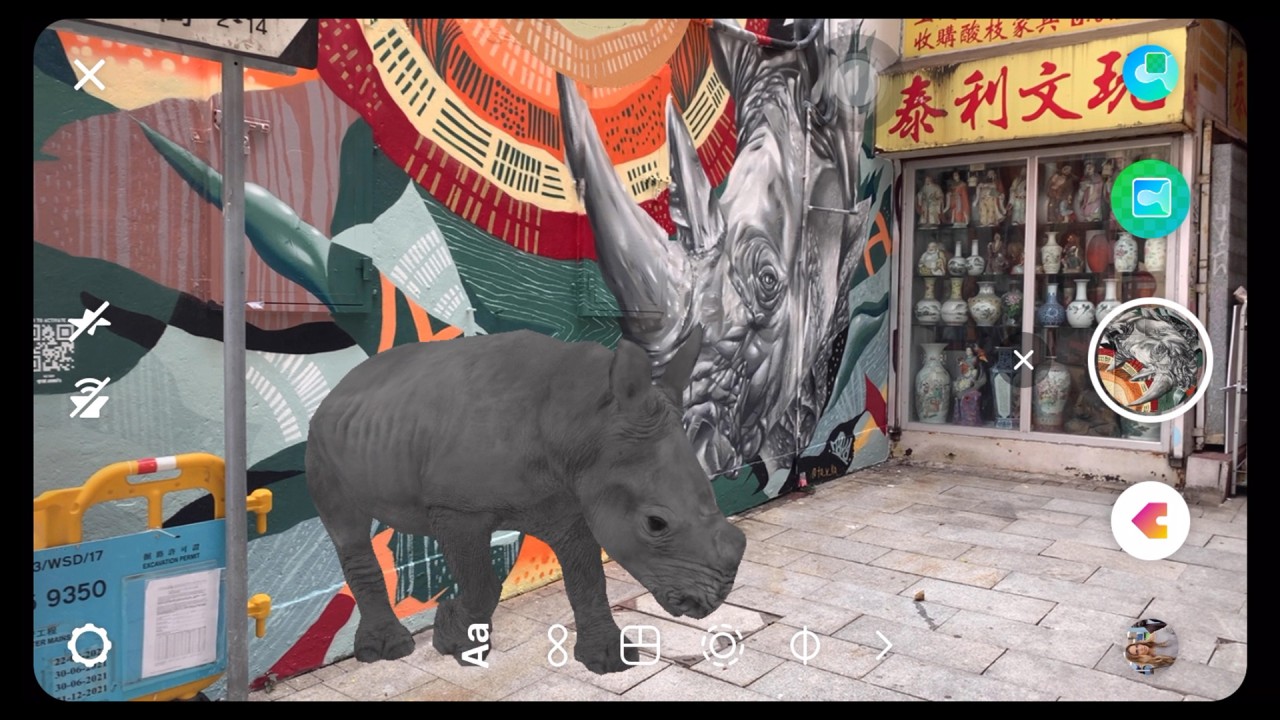
05:54
Interactive murals across Hong Kong aim to boost support for bill to combat wildlife trafficking
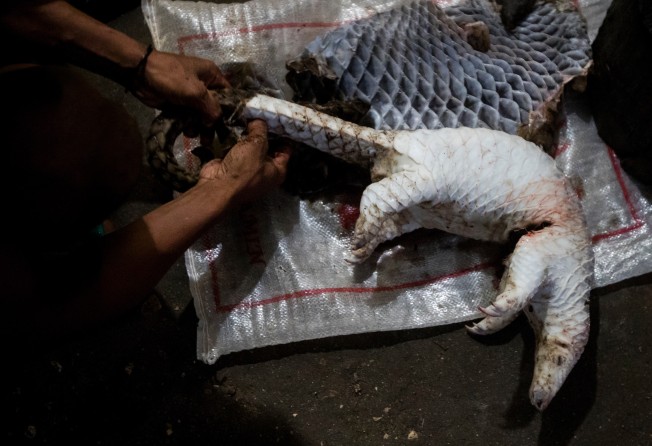
Pangolins have clever defence mechanisms. When threatened they curl up into a tight ball – the name pangolin is derived from the Malay word pengguling, meaning “one who rolls up” – the hard scales covering their bodies overlap to create an “armour”. Like skunks, pangolins can spray a noxious fluid from glands near their anuses to keep predators at bay.
Sadly these protective tools can’t deter humans, who have poached the anteater-like creatures to near-extinction, the trade fuelled by false claims in traditional Chinese medicine that pangolin scales relieve ailments from asthma to poor kidney function, and can improve lactation. On top of that, in China and Vietnam pangolin meat is considered a delicacy.
All eight pangolin species – four Asian and four African – are listed under Appendix one of the Convention on International Trade in Endangered Species, meaning they may be traded only in exceptional circumstances. Yet despite this, the highest level of protection under international law – and a move by China in January 2020 to increase legal protection for the animals – the pangolin is still considered the world’s most trafficked mammal.
That is a label unlikely to change if Hong Kong maintains its current role in the illegal wildlife trade.
In 2018 and 2019, pangolin scales and carcasses seized in the city equated to the poaching of 50,200 of the animals – or one every 21 minutes.
This is one of the many grim findings in “Still Trading in Extinction: Hong Kong’s Insatiable Demand for Exotic Wildlife – Dead or Alive”, an in-depth report by ADM Capital Foundation, a Hong Kong-based non-profit which campaigns against international wildlife crime.
The report – which looked at wildlife seizures in 2018-2019 and prosecutions from 2017 to 2020 – is a depressing read. In 2018 and 2019, authorities in Hong Kong seized a record-breaking 649 metric tonnes of rare and endangered wildlife valued at HK$207 million (US$26.7 million), equating to 1,404 seizures involving about 7,000 live animals. The majority comprised seizures of wildlife products and derivatives.
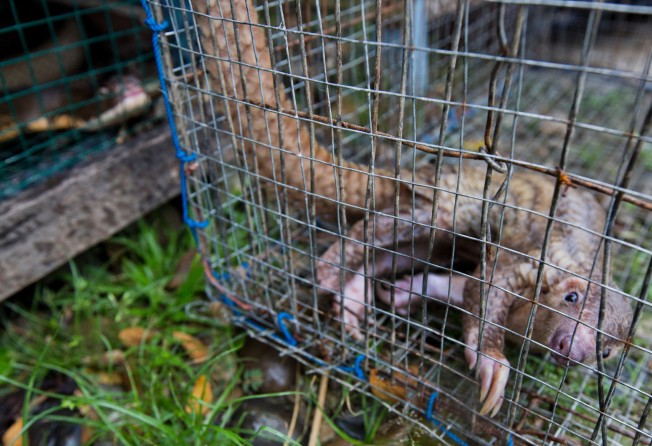
In 2019 alone, the government euthanised more than 2,300 seized endangered animals and, in that same year, nearly a third as much smuggled wildlife, wildlife products and derivatives was seized in Hong Kong as in the whole of China.
The report highlights a thriving pangolin trade route to Hong Kong from Nigeria; the west African country is a trading hub for pangolin trafficked out of the continent. Since 2015, Nigeria has been implicated in global seizures of more than 167 tonnes of pangolin scales – the equivalent of at least 167,000 pangolins, a 2020 report by international NGO the Environmental Investigation Agency found.
Hong Kong plays a huge role in the trade, says ADM Capital Foundation. Of the 78 tonnes of pangolin scales seized from Nigerian consignments worldwide in 2018 and 2019, a quarter was seized in Hong Kong.
“If we’re going to pick a single species to be worried about, it’s the pangolin,” says Sam Inglis, of ADM Capital Foundation, who helped compile the “Still Trading in Extinction” report. “It’s no secret that Hong Kong is a thoroughfare for the pangolin trade.”
Another concern raised in the report is the lack of data for species traded under “other endangered species” – everything that is not ivory, pangolin or wood – that Inglis says were at an all-time high in 2019. “This category – which includes anything from rhino horn to shark fin to a live turtle or parrot – has very little granularity or insight into the specific species or the composition of what that category looks like, which is pretty much what spawned most of the research,” he says.
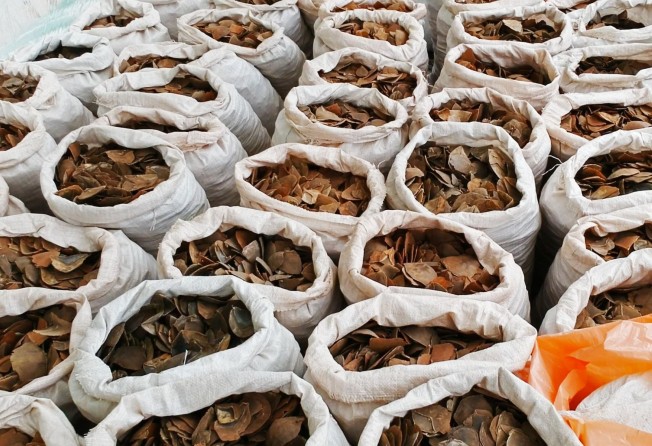
Inglis adds that while the figures in the report are alarming, they grossly underestimate the trade’s true scale.
The foundation also expressed concern over the failure by Hong Kong prosecutors to pursue criminal prosecutions in connection with the record seizures made, because of a lack of evidence. This includes a 2019 case involving 8.2 tonnes of pangolin scales and 2.1 tonnes of ivory (equivalent to 13,800 pangolins and 200 elephants) and a 2017 case when 7.2 tonnes of ivory – equivalent to 1,690 elephants – was seized.
Harsher maximum penalties introduced in 2018 for smuggling and the illegal trading of endangered species – 10 years’ imprisonment and a HK$10 million fine – combined with a ban on ivory smuggling in the city that same year, have had little impact, says Sophie le Clue, director of environmental programmes at ADM Capital Foundation.
“Unfortunately there is no indication of any substantive curbing of the illegal wildlife trade in the city since the enactment of the 2018 amendments,” says le Clue. The government secured the convictions of 377 offenders, with their sentences ranging from a fine of HK$300 to 34 months’ imprisonment, she says. “These prosecutions have done little to deter those orchestrating and benefiting from illegal supply chains,” le Clue adds.
The report’s conclusion is simple: despite Hong Kong’s small size, its position as a leading trade hub, combined with its proximity to key demand centres for wildlife products such as China and Vietnam, is contributing to the global extinction crisis.
That could change, however, if a proposed law change now being considered by the government is approved.
Put forward by Elizabeth Quat of the Democratic Alliance for the Betterment and Progress of Hong Kong, the city’s largest pro-establishment political party, the proposed amendment would see wildlife crimes handled under the Organised and Serious Crimes Ordinance. The proposal has been reviewed by a Legislative Council panel, approved by the Legco president, and is now under consideration by the Chief Executive’s Office.
“The law change has the power to shift Hong Kong’s reputation from wildlife trafficking hub to global leader,” says le Clue. ADM and other Hong Kong-based environmental groups - Bloom, which advocates for marine conservation, the Hong Kong Shark Foundation and WildAid HK - have been pushing for the law change.
The legislative reform, says Amanda Whitfort, associate professor of law at the University of Hong Kong, would facilitate the use of powers by enforcement authorities to tackle wildlife crime that are currently reserved for serious crimes such as drug and arms trafficking.

It would allow the investigation of persons or materials with connections to organised crime as well as the confiscation of proceeds of crimes, she says, and could serve as a powerful disincentive to wildlife criminals, preventing the reinvestment of profits to fund further criminal activities.
Bringing down the smuggling masterminds who target Hong Kong because of the high profits of the trade and low risk of prosecution is a key target of the proposed law change, says Whitfort.
“Those at the bottom of the trafficking chain, the mules who don’t appear to be critical to the operations of criminal syndicates, are being penalised while the kingpins roam free,” she says. “You can’t follow money trails if you don’t have the correct enforcement powers.”
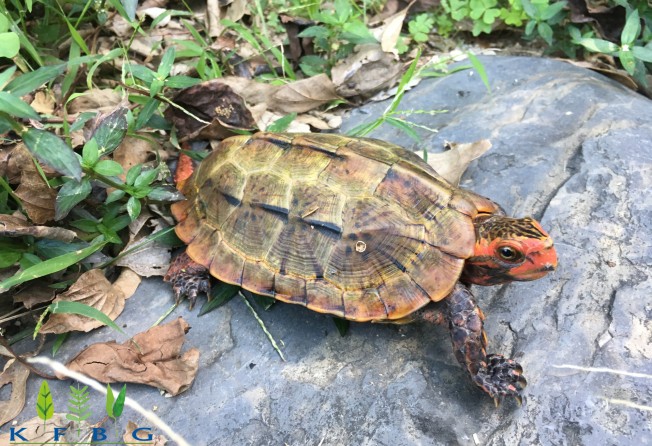
Whitfort says seizures spiked by 330 per cent from 2017 to 2018 and by a further 37 per cent from 2018 to 2019, despite the increased penalties imposed in 2018. In Hong Kong, illegal wildlife valued at more than HK$1 billion (US$129 million) was seized between 2010 and 2020, according to government figures.
Whitfort has long been an advocate for wildlife causes – and she is literally giving the voiceless a voice through the SVIS Initiative, a project she founded that provides species victim impact statements (SVIS) to prosecutors and judges in court proceedings for wildlife offences.
The statements, which include the opinions of experts such as Gary Ades, head of fauna at Kadoorie Farm and Botanic Garden, and ecologists at the University of Hong Kong’s School of Biological Sciences, provide information including a species’ conservation value, population details, the effects of their capture on food chains, their black market value, welfare concerns, and evidence of money laundering.
The statements also include data about a species’ potential as a carrier of zoonotic disease – which could jump from an animal to humans – an issue of great concern given scientists’ belief that animal transmission is the source of the Covid-19 pandemic.
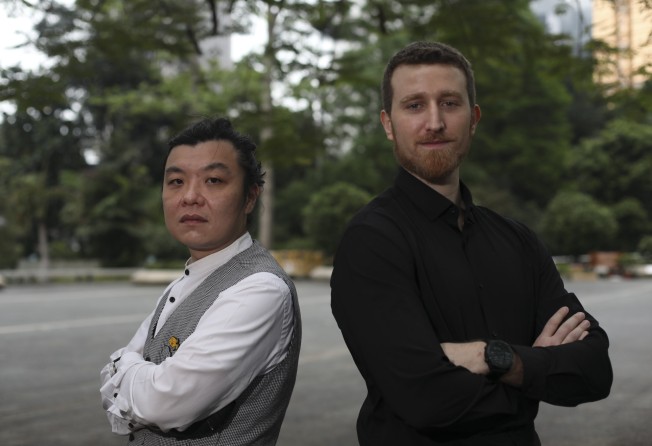
Since 2018, more than 100 statements have been heard – and they’re having an impact, with the Hong Kong judiciary increasing its sentencing range in wildlife crime cases by up to 2,066 per cent.
In terms of sentencing, the penalty for a defendant convicted of trading in rhino horn increased from eight weeks to 12 months’ imprisonment after SVIS data was included in a prosecutor’s court submission. In another case, the penalty for trading in Madagascar and radiated tortoises – highly endangered species – was increased from six weeks to two years and six months’ imprisonment after a judge considered SVIS information.
It’s rare good news about a trade that le Clue says has global ramifications. “The illegal wildlife trade can lead to species and biodiversity loss, yet it continues to supply a market for mostly luxury and non-essential goods including decor, ornaments, jewellery, pets – at great cost,” she adds. “The lack of effective enforcement in Hong Kong is also evident worldwide. As species continue to decline, the traffickers are clearly winning.”